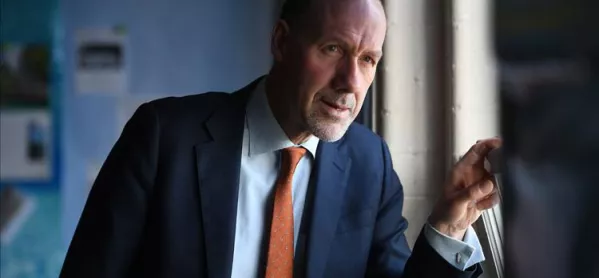A heads’ leader says he is reassured because it is clear there will not be a “rush” to open schools with an easing of the lockdown.
Geoff Barton, general secretary of the Association of School and College Leaders, was reacting to comments from the government’s chief medical officer who has suggested that social distancing measures could be in place until the end of the year.
“In some ways the starting point for listening to what Chris Whitty said today is that there is something reassuring that there is not going to be a rush for everyone going back to school, which has spooked everybody, and at least we’re thinking actually a bit more long term,” Mr Barton said.
Coronavirus: Social distancing in schools ‘impossible’
Coronavirus: Prioritise reopening schools, says Starmer
Unions: ‘Stop speculation about schools reopening’
“We already knew that whether schools were going to go back after half term or whether they were finally going back in September, you wouldn’t be able to have all of your staff back so we already knew you’d have to have smaller year groups there and we started to think, ‘which year groups would they be?’”
There have been concerns raised over how practical social distancing in schools could be. Last week, Katharine Birbalsingh, the head of Michaela free school in North West London, warned it would be “impossible”.
Speaking on BBC Radio 4‘s World Tonight programme, Mr Barton added that there were issues over what social distancing would mean in practice in a school context.
“The problem is, whether you’re in a primary school or a secondary school, what does social distancing look like in the classroom, and of course as my experience tells me it’s not just in the classroom, it’s assemblies, it’s kids playing sport on the field and all of that,” he said.
Mr Barton said there was now time to consider the “logistics” of this, but that headteachers and the public were craving a time when children might be able to “resocialise and get back to a sense of normality”.
He added that “it’s sounding tonight as if that’s going to take a lot longer”.
“I think what our members will do is to say, ‘let’s start exploring the possibilities of how we make that work realistically, because what we want is to make sure that parents feel that they are safe to send their children back, and staff feel safe.’”




